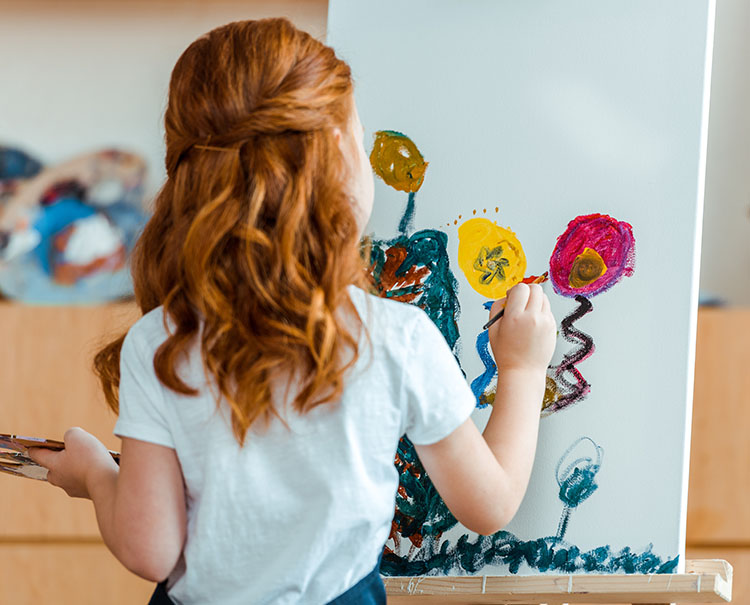Play therapy, more than just playing
Feeling too much, too often
When emotions become too frequent or intense, a child can feel preoccupied by the emotion and this can impact learning, behavior and relationships. Play therapy for children can help.
Play therapy includes many of the same components of traditional talk therapy but uses toys, storytelling, art and more to communicate.
When a child’s emotions are stable they are better able to learn in school and home and tackle developmental tasks. They are more able to handle the day to day stressors of life and accept help when they need it.
Play therapy is available at our Bloomington location.

Why play therapy?
Play therapy works! It is an incredible way to help a child who is struggling to feel better. Play therapy includes many of the same components of traditional talk therapy: expressing and reflecting back emotions, improved understanding of one’s experience and problem solving.
The true magic of play therapy is that children get to work through painful and difficult events with toys, storytelling and art. As adults we tell our story with words, we are better equipped to describe and process complex and or multiple emotions verbally.
Children do the same in play therapy, only the story is acted out with a trained therapist who understands, in the same way a talk therapist understands, when and how to respond to support growth and healing. Children’s brains are not yet fully developed and this can limit their full capacity to talk about, process or understand complex and difficult feelings in the same way an adult might.
The play process helps to create distance from strong emotions or painful experiences and this along with the presence of the therapist strengthens a child’s ability to face hurts or anxieties.
Playing through difficult feelings
For example, a child who is feeling powerless in his or her life, maybe as a result of parent’s divorce may not know how to label this feeling of powerlessness with words. He or she can, however, very clearly communicate their emotion during play sessions. Powerlessness during a play session may be shown to the therapist by the child setting up a scenario where nothing the therapist does brings any change which results in sadness and possibly hopelessness.
In the child’s life, he or she may have tried many things to help their parents get along or stay together with no success. The therapist would recognize the child’s communication and would reflect this painful experience of feeling powerless. This process can help the child feel understood and not alone in this experience.
In the child’s day to day life, their experience of powerlessness may not be expressed as the parents would expect. The child may seem to be acting out of the ordinary and an increase in problematic behavior. The parents may recognize the anger but not understand the deep powerlessness that underlies the anger. During the play the child feels empowered as s/he is given the choice of what is expressed and in many ways how it is expressed. The child will have the opportunity to express the anger, powerlessness, sadness and loss s/he may be experiencing.
After the child feels their emotional experience has been understood s/he may begin to play around with the idea of their own power. They may not really feel their own sense of power at the time and may “borrow” power. This may be conveyed as the child wearing a superhero costume and looking at him/herself in the mirror. S/he may play out the experience of having power as a superhero.
This can then lead the way for recognizing a more accurate realization of their power and ultimately acceptance of her/his situation. The feelings that accompanied the powerlessness have been worked through and are no longer experienced as too intense or too frequent. The child returns his/her focus to typical developmental tasks and demonstrate an increased ability for learning and growth.
Schedule An Appointment
We can help with therapy and counseling for your child. If you are ready to learn more, let’s schedule a free 30-minute consultation.

